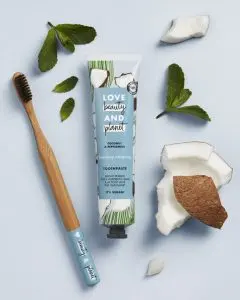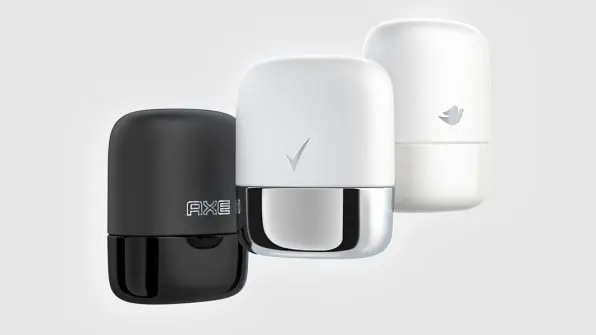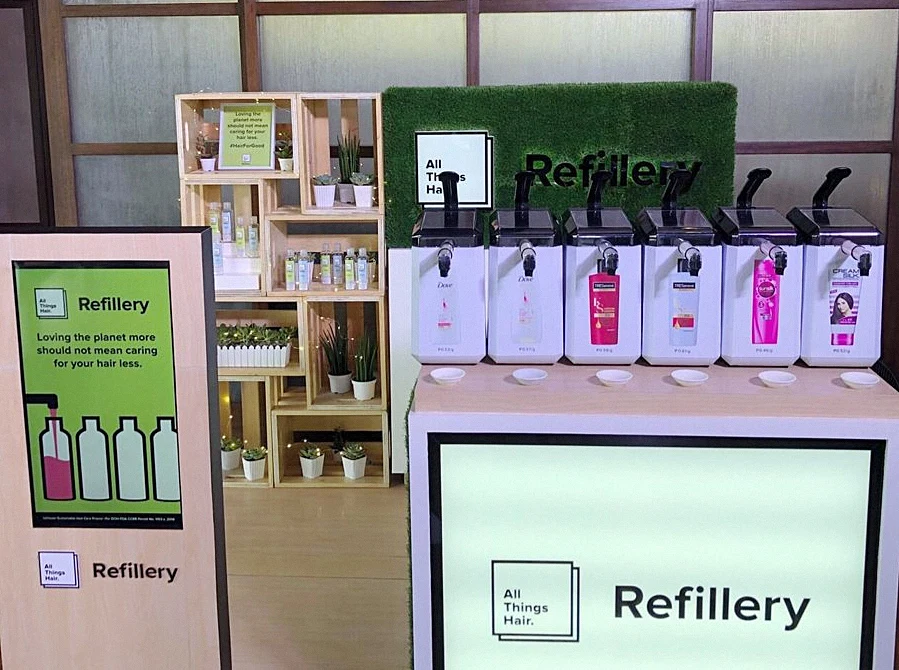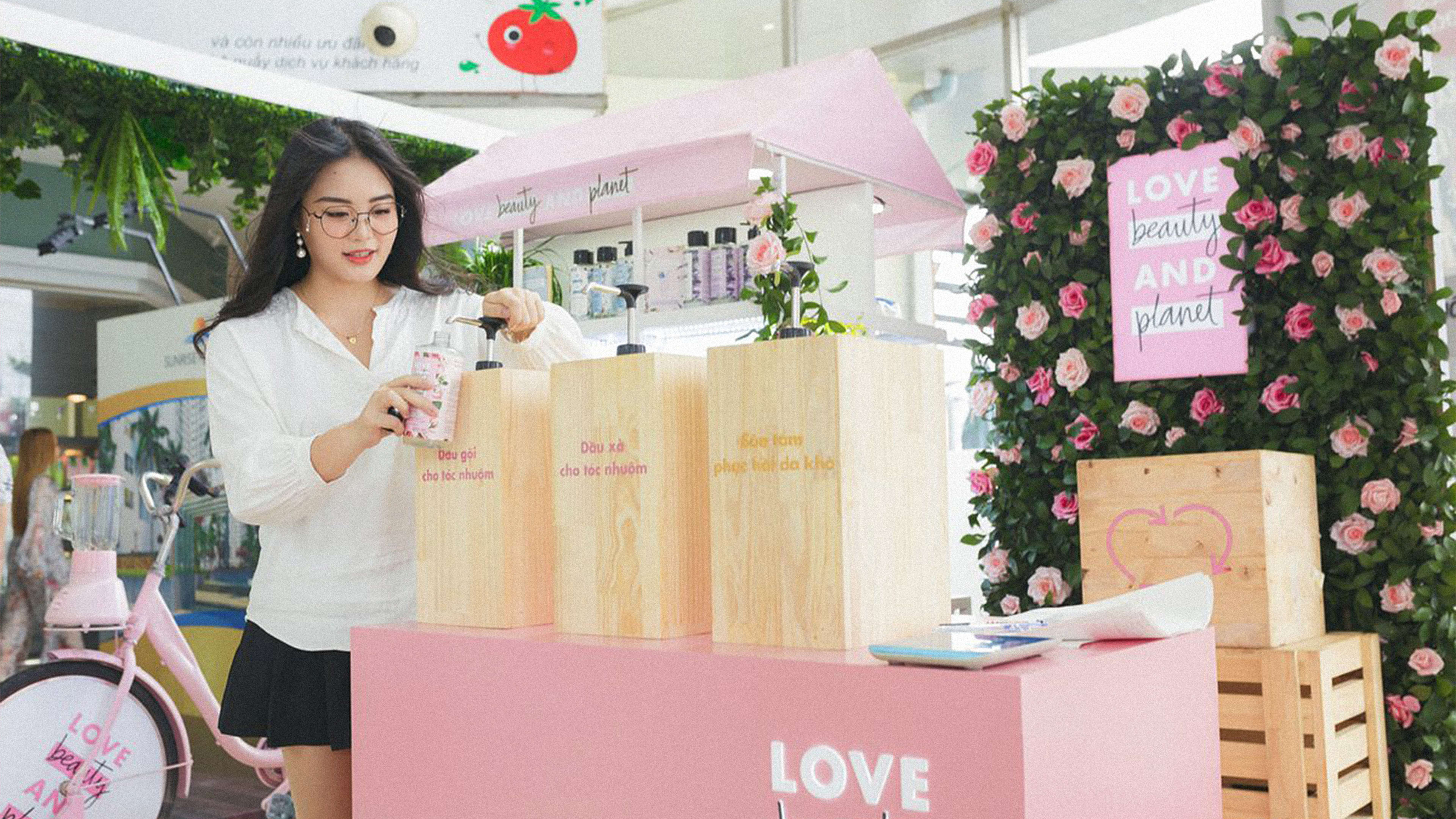The consumer products giant Unilever—which owns hundreds of brands from Dove and Seventh Generation to Hellman’s and Breyers—uses 700,000 metric tons of plastic in its packaging every year. But the company is planning some major changes: to cut its use of virgin plastic packaging in half by 2025 and take a major step away from single-use plastic.

“We believe we’ve got to reduce the amount of plastic packaging we use,” says Matt Demorais, who leads Unilever’s policy and advocacy engagement on sustainable packaging. The company also plans to reduce its use of plastic packaging in absolute terms by 100,000 metric tons, making it the first large consumer products company with such an ambitious goal.
“What we see as meaningful in the Unilever commitment is that it acknowledges the need for that total reduction of the amount of plastic that companies are producing and selling, and then that the way to get there is through new business models and innovating away from a throwaway culture that currently defines the consumer goods sector,” says Graham Forbes, global projects leader at Greenpeace USA.
Under greater pressure from consumers, many large companies have set new goals to move to recyclable, reusable, or compostable packaging. Many also plan to increase the amount of recycled or plant-based materials that they use—an important step in part because plastic, which is typically made from fossil fuels, is also a source of greenhouse gas emissions. (According to one estimate, by the end of 2019, making and burning plastic will emit as much climate pollution as 189 coal-fired power plants; oil companies now count on huge growth in demand for virgin plastic as a source of revenue as the world moves to oil-free alternatives in transportation such as electric cars.) But committing to reduce the total amount of plastic packaging is equally important.
“If you only look at virgin plastic, and just start trying to recycle and use recycled content but continue a throwaway culture, you’re still looking at billions of bottles or sachets making their way into the natural environment,” says Forbes. “It really needs to be on both fronts.” Plastic water bottles, for example, are very recyclable, but most of them aren’t recycled even when consumers have easy access to recycling bins.
It’s a struggle, Forbes says, for many companies to move away from the single-use system they’ve relied on. “For the past 30 years, these companies have really done everything they can to lock in a business model based on this sort of idea that you can throw something away. And from an economic perspective, for them, that makes a ton of sense, because they externalize the cost to all of us to local communities into the natural environment. We’re just starting to see these sort of multinationals take this issue seriously, and look at how they evolve away from single-use products.”

Unilever was one of a handful of major companies to participate in the launch of Loop, a new pilot that is testing the idea of selling everyday products like deodorant and ice cream in reusable containers. The company is now testing multiple solutions for packaging in different areas. In the Philippines, for example, it tested “The Hair Refillery,” a pilot in shopping malls in Manila that lets consumers use their own bottles to refill shampoo and conditioner from brands like Dove and Tresemmé; because consumers there are price-conscious, the system was designed to let them refill exactly as much as they wanted to and to pay by weight. In Europe, the company has tested another refill system, which uses sensors to automatically fill bottles. In the U.K., a brand of cleaning spray is now sold with refill cartridges that consumers take home, put in an existing bottle, and fill with water. “The trigger heads on the bottles are designed to be used thousands of times, so why would we throw those away?” says Demorais. The company has also designed bamboo toothbrushes, cardboard deodorant sticks, and package-less shampoo bars.

“We think that there’s a bit of a tipping point at the moment from a consumer perspective, where people are more open to adopting these kinds of behaviors and ideas, moving to kind of reuse and refill,” he says. “It has been tested previously, but we think we’re at the right point in time that we can really try to accelerate some of these solutions.”
Simultaneously, the company is working to help collect more plastic waste and has a new goal to collect and process more plastic waste than it creates by 2025. In areas like Southeast Asia, where the crisis of plastic entering the ocean is most acute, that might involve improving local recycling infrastructure. It also means that Unilever will buy more recycled plastic itself, increasing demand for recycling. The company is also working to redesign packaging to be more recyclable—black packaging often can’t be “seen” by infrared recycling equipment, for example, but Unilever recently designed a new black dye that can be readable.
Still, Greenpeace and some other environmental advocates argue that the ultimate goal should be moving away from single-use packaging completely. If governments adopt new regulations to incentivize reusable packaging and ban single-use packaging, that can help accelerate the pace of change. “There’s a long way to go,” says Forbes. “I think when companies put their real investment and attention to it, they’re absolutely going to be able to do it—and that it is absolutely necessary.”
Recognize your brand’s excellence by applying to this year’s Brands That Matter Awards before the early-rate deadline, May 3.
